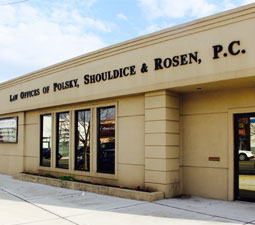We all rely on and trust our medical providers to help us when we are ill or in need of care. We expect that they will improve our health. Unfortunately, sometimes medical providers can actually harm patients. Medical malpractice occurs when medical providers fail to meet the standard of care for their profession, and as a result, a patient is harmed. If you have experienced any of the following medical situations, you may need to consider hiring a medical malpractice lawyer.
Missed Diagnosis
Missed diagnosis cases arise when a medical provider fails to diagnose an injury or illness that, had the medical provider acted appropriately and with the requisite level of skill, the diagnosis would not have been missed.
- In these cases, if the failure to diagnose results in a worse result than would have occurred if diagnosis had been made, then the patient may be entitled to recover damages from the medical provider.
- The difficulty with these cases is proving that if the caregiver had provided an earlier or more accurate diagnosis, the outcome would have been better or that the poor outcome was avoidable.
Unrelated Injury
Another situation where you should consider hiring a medical malpractice lawyer is if you received an injury while under the care of your medical provider that is unrelated to your initial injury or illness. Examples of this type of case include:
- Operating on or removing the wrong appendage or organ
- Sustaining an injury while under anesthesia that is wholly unrelated to the procedure for which you were anesthetized.
Lack of Informed Consent
Before performing any procedure or treatment on a patient, a doctor has a duty to inform that patient of the risks associated with the procedure or treatment. Without understanding the risks, a patient cannot properly weigh those risks against the potential benefits. If a doctor fails to explain a possible negative outcome that in fact later occurs, and
- If the patient can show that if they’d had prior knowledge of that risk they would not have consented to the treatment or procedure, then
- The doctor may be held liable for damages.
Medical Negligence
General medical negligence can occur in a variety of settings, but commonly include
- Situations where an inappropriate treatment or procedure are recommended or
- Where an appropriate treatment or procedure are performed in a manner that fails to meet the standard of care required.
In those situations, when an injury results, patients may be able to recover damages from the treating physician.
Negligent Nursing
Sometimes, injuries do not occur as a result of the care of the medical provider, but rather, as a result of the negligence of the nursing staff caring for the patient before or after the treatment or procedure. Common examples of this type of case include:
- Administration of the improper medication or the improper dosage of medication
- Failure to properly tend to the patients recovering from medical procedures.
In these cases, even though procedures were performed properly, inadequate aftercare resulted in injury to the patient.
Medical malpractice cases require an experienced medical malpractice attorney such as the personal injury lawyer Memphis TN locals trust. Such cases cannot be proved without expert testimony to prove clear liability, deviation from the standard of care, and damages.
Thanks to authors at Patterson Bray PLLC for their insight into Personal Injury Law.


